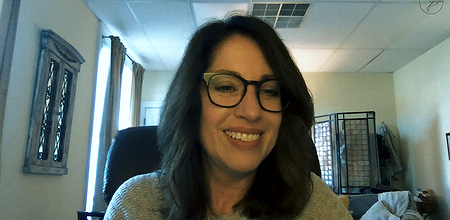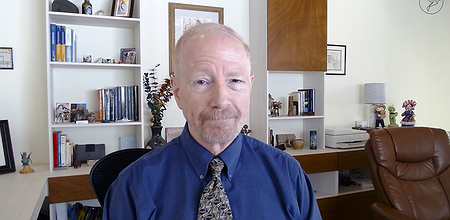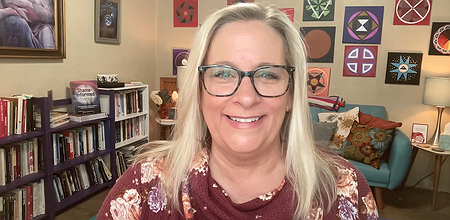A theoretical course illustrated with clinical examples. This course is composed of videos of 5 to 15 minutes each. The PowerPoint of the course to download.
Working with resistant patients: how to reach through resistance to the patient hidden within
Jon Frederickson, Social Worker
Manage client hostility by unveiling unconscious feelings and memories
Excerpt:
- 5h of continuing education
- 39 lessons that last from 5 to 15 minutes each
- 1 certificate of achievement
- 1 PowerPoint
- 1 bibliography
- 1 course evaluation
- 4 months access - automatically extended until you complete the course
- 7-day money back guarantee
- 97% of participants who completed the satisfaction survey declare they would recommend this course to a colleague
Overview
Encountering a client who is resistant or potentially hostile to the therapeutic process or the therapist can be unsettling and may undermine the success of the treatment.
This workshop, led by renowned psychotherapist Jon Frederickson, is specifically designed to equip you with advanced strategies for engaging with patients who exhibit detachment, passivity, and resistance in therapy.
You will delve into the nuanced assessment of patients, employing the concept of conflict to unravel the intricate sequence of emotions, anxieties, and defenses underpinning their symptoms and presenting issues. A significant focus will be on mastering the art of navigating patients' feelings, effectively regulating anxiety, and discerning and addressing resistances and defenses, along with understanding their impact on the patient's well-being.
Jon Frederickson will offer insights into managing the emergence of repressed feelings and evaluating patient reactions to therapeutic interventions. The use of video recordings from actual therapy sessions will serve as a pivotal learning tool, showcasing how you can identify and counteract behaviors that hinder treatment progress. These recordings will be instrumental in demonstrating techniques to foster a robust therapeutic alliance by guiding patients to confront and transform self-destructive patterns.
Furthermore, the workshop will provide clinical vignettes to exemplify real-time strategies for working with patient resistance. These examples will highlight methods for breaking through the patient's defensive barriers, thus enabling deeper engagement and facilitating a meaningful connection with the individual concealed behind these resistances. This approach is designed to help you make contact with the person hidden behind that resistance.
About the expert

Jon Frederickson has been a psychotherapist since 1982. He specializes in treating resistant patients. He is on the faculty of the Intensive Short Term Dynamic Psychotherapy (ISTDP) Training Program at the Washington School of Psychiatry. He has provided ISTDP training in Sweden, Norway, Denmark, Poland, Italy, Switzerland, India, Iran, Australia, Canada, the U.S., and the Netherlands.
He is the author of over fifty published papers and book chapters and of many books, including Co-Creating Change: Effective Dynamic Therapy Techniques, Psychodynamic Psychotherapy: Learning to Listen from Multiple Perspectives, The Lies We Tell Ourselves, and Co-Creating Safety: healing the fragile patient.
His book Co-Creating Change won the first prize in psychiatry at the British Medical Association Book Awards, and it has been published in Farsi, Polish, and Slovak, and is currently being translated into Hebrew and Spanish.
His book The Lies We Tell Ourselves has also been published in multiple languages. His most recent book is Healing Through Relating.
Learning objectives
- Identify treatment resistant behaviors
- Differentiate a feeling from a defense and from resistance
- Clarify and address the price of resistance
- Maintain an effective therapeutic focus and overcome patient resistance
Learning material
Syllabus
- PowerPoint
-
Understanding Resistance: Foundations and Framework
- 1. Presentation
- 2. Why resistance
- 3. The incapacity to declare a problem
-
Navigating Denial and Permission in Therapy
- 4. You need the patient's permission to help
- 5. Mirroring the patient's denial
- 6. Understand drugs use
- 7. Empathize with the patient's needs
- 8. Remind the contradiction
-
Exploring Anxiety Triggers and Passive Behaviors
- 9. Explore what triggers the anxiety
- 10. The patient can be telling you the problem unconsciously
- 11. How to deal with a passive patient
- 12. Deactivating denial
- 13. Use mirroring denial as pressure
-
Handling Emotional Isolation and Therapeutic Challenges
- 14. Isolation of affect
- 15. Avoid interpersonal conflict
- 16. Accept the resistance, don't fight it
- 17. The fear of being invaded_1
- 18. When the patient wants to stop therapy
-
Therapeutic Strategies and Emotional Processing
- 19. Addressing the resistance
- 20. The habit of hiding
- 21. The problem with insights
- 22. The declaration of a problem
- 23. Documenting for yourself and the evolution of the therapy
- 24. Homework for the patient
- 25. Caring for the patient is key
- 26. Second patient - distancing
- 27. The helplessness of the patient
- 28. Deactivating the resistance
- 29. When the patient pretends to be less capable than he is
- 30. The raise of feelings
- 31. Running away from the feelings
- 32. Trust the feelings
- 33. Facing the guilt (WARNING)
- 34. How to deal with horrific stories as a therapist
- 35. PTSD and guilt
- 36. Bringing the guilt out
- 37. Conclusion of the second patient
- 38. Questions - couple therapy and metaphor
- 39. Conclusion
- Bibliography
CE Credits
Download a certificate of successful completion.
Audience
This training is intended for mental health professionals.
Registration
Ask a question
Do you have a question? Then email us at contact@asadis.net
Frequently asked questions
-
How long do I have access to the course?
After your registration, the course is accessible anytime and from anywhere for 124 days. And if that’s not enough, we’ll automatically extend your access.
-
When does the course start?
That is entirely up to you! When you buy a course, you'll receive an access link that you can activate when you want.
-
Is there a student rate?
Yes there is! To learn more, email us at contact@asadis.net.
You may also be interested in:
Legal notice
The courses offered by ASADIS are accredited by different professional organisations. In addition, ASADIS is approved by the Canadian Psychological Association to offer continuing education for psychologists. ASADIS maintains responsibility for the program.
The CPA’s approval of an individual, group, or organization as a CE Sponsor or Provider is restricted to the activities described in the approved application or annual report form. The CPA’s approval does not extend to any other CE activity the Sponsor or Provider might offer. In granting its approval, the CPA assumes no legal or financial obligations to Sponsors, Providers, or to those individuals who might participate in a Sponsor or Provider’s CE activities or programs. Further, responsibility for the content, provision, and delivery of any CE activity approved by the CPA remains that of the CE Sponsor or Provider. The CPA disclaims all legal liability associated with the content, provision, and delivery of the approved CE activity.





